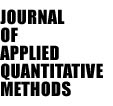 |
|
|||
Aestetics, Usefulness and Performance in User-Search Ė Engine Interaction
Keywords
usefulness, aesthetics, usability, search engines, human computer interactions, interface design,
Abstract
Issues of visual appeal have become an integral part of designing interactive systems. Interface aesthetics may form users' attitudes towards computer applications and information technology. Aesthetics can affect user satisfaction, and influence their willingness to buy or adopt a system. This study follows previous studies that found that users associate aesthetics with other system attributes, e.g. usability. In this study, we asked whether the well-known phenomenon that beautiful things are perceived as good applies to the perception of the systemís usefulness. A controlled laboratory experiment tested the relationships between usersí perception of aesthetics, usefulness and user performance in tasks performed by participant using an interactive application that surrogated a search engine. We measured usersí perceptions of the search engine before and after they used the system to solve information-seeking tasks, and measured user task performance. As expected, significant correlations were found between perceived aesthetics and perceptions of usability and usefulness prior to actual use of the system. We did not find a relation between perceived aesthetics and usefulness after use; and we did not find an expected effect for aesthetic perceptions neither on perceived usefulness nor on performance. We conclude that there is need for a deeper understanding of aesthetic perceptions; a finer grain perspective of perceived aesthetics that differentiates between aesthetic dimensions may reveal that some aesthetic aspects have greater influence on the relations between aesthetics and usefulness.

